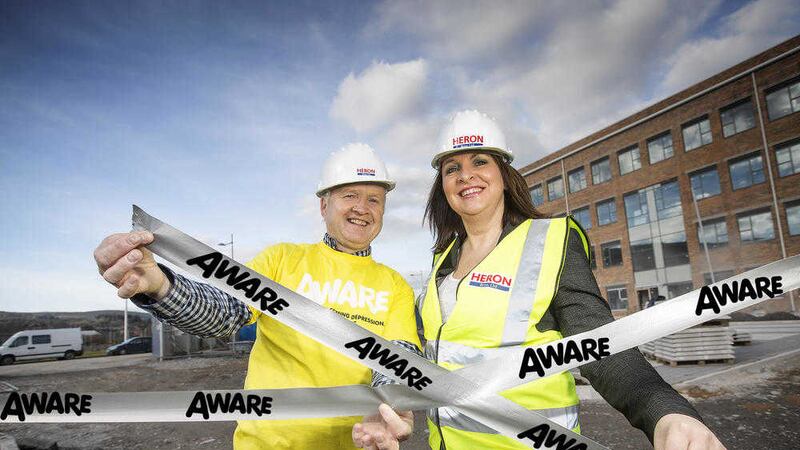PEOPLE suffering with depression permeate every industry and rates for depression in Northern Ireland employees are greater than in the rest of the UK. Depression affects our ability to concentrate, make decisions; it produces slower thinking, forgetfulness and difficulty planning.
Think about that in the workforce – the trusted staff who implement key business responsibilities. If they are depressed then this can lead to efficiency problems. It can become a much greater problem for employers if they don’t understand stress, anxiety and depression – left unsupported, it could be contributing to an unhealthy workforce that could lose a company money down the line.
Most people are afraid to talk about their mental health in work because of the stigma surrounding it. It is easy to take time off with a broken leg, but employees find mental illness hard to discuss thus making it harder engage with their employer. Although more women than men suffer from depression, anyone can be affected. It could be the maintenance staff, the cleaner, or director – depression does not discriminate.
No employer wants to be the cause of poor mental health in any employee, but it often happens as they don’t understand it, don’t have the skills to talk about it and as such can stigmatise it so much in their workforce that people either stay in work when they are unwell or take sick leave.
This needs to change. Firstly employers need to understand that depression is deemed a disability under the Disability Discrimination Act, defined as: ‘a physical or mental impairment which has substantial and long-term adverse effect on a person’s ability to carry out normal day-to-day activities.’ An employer could well face an industrial tribunal if they are treating a person with depression differently or less favourably than a member of staff who is not depressed.
Secondly, depression impacts on the bottom line. Mental health is the leading cause of sickness absence in Northern Ireland, and when people are sick the employer loses out in terms of loss of productivity, long-term sickness absence and early retirement. Each year, mental ill health costs the economy an estimated £70 billion through lost productivity, social benefits and health care. Loss of productivity hurts any business – so when people ask if depression is a real risk to business – the statistics speak for themselves.
However our experience shows it is a risk that is manageable and avoidable – providing employers have the right tools. We are the leading depression charity in Northern Ireland with 23 support groups across the province. We provide business programmes tailored for large and small organisations and at our upcoming depression conference on March 31, we will highlight support available for employers to help employees with mental illness.
We see employees as the backbone of any organisation and if they become mentally unwell, employers need address it, be supportive and to adopt policies and procedures where a person can feel supported – because ultimately, developing a mental health strategy for the workplace is vital to the long-term profitability of any business.
:: Siobhan Doherty is chief executive of the AWARE (www.aware-ni.org) charity in Belfast



